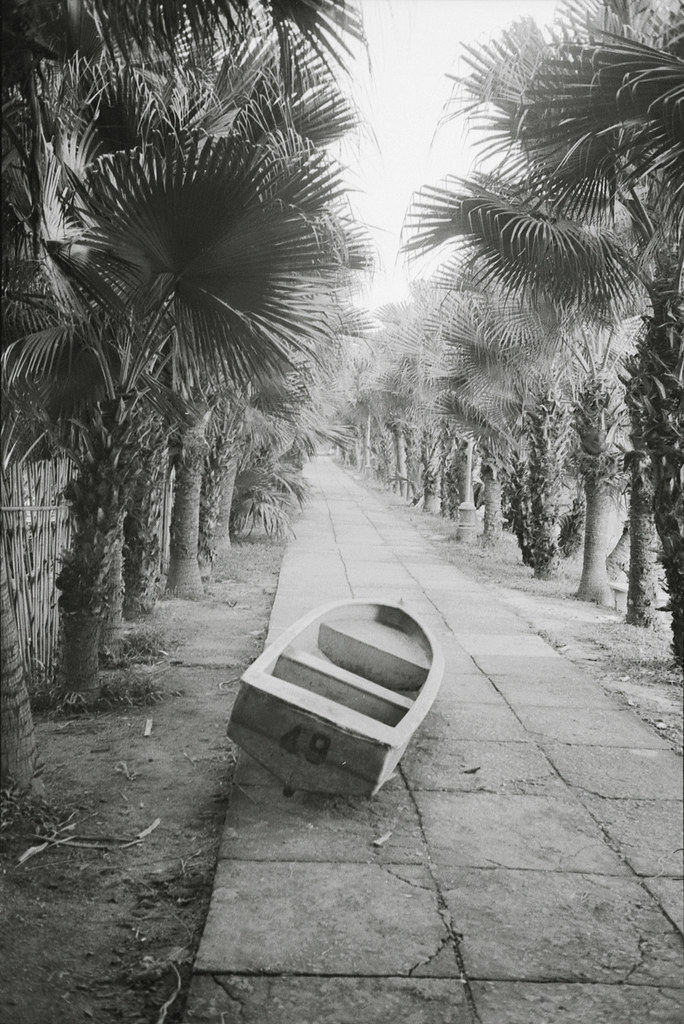
1978_4022 | China 1978 |1978 China, Guangdong, Guangzhou. Hua Guofeng authorised tourist visas… Because
France recognised People's Republic of China in 1964, as a frenchman, I
got quite quickly a visa from the China Travel Agency in Hong Kong in
the early 1978… "On 6 October 1976, shortly after the death of
Mao, Hua removed the Gang of Four from political power by arranging for
their arrests in Beijing. Afterwards he took on the titles of party
chairman and Chairman of the Central Military Commission. Hua is thus
far the only leader to have simultaneously held the offices of party
leader, premier and CMC chairman... Hua attempted moderate reforms
and reversing some of the excesses of Cultural Revolution-era policies.
However, because of his insistence on continuing the Maoist line, he
faced resistance in the upper echelons of the party. In December 1978, a
group of party veterans led by Deng Xiaoping, a pragmatic reformer,
forced Hua from power but allowed him to retain some titles. Hua
gradually faded into political obscurity, but continued to insist on the
correctness of Maoist principles." Wikipedia: photo by Pierre Wayser, sometime in 1978

1978_4510 | Philippines 1978 | Palawan, Philippines: photo by Pierre Wayser, sometime in 1978
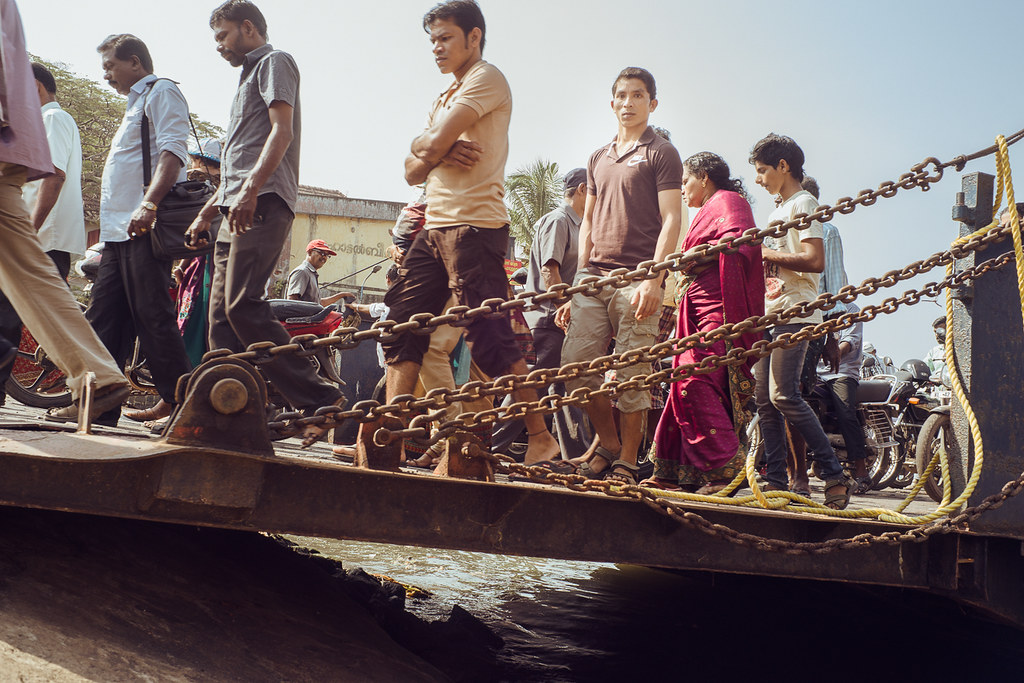
DSC04006 | India 2014 [Kochi, Kerala]: photo by Pierre Wayser, 30 January 2014

1978_10258 | Philippines 1978: photo by Pierre Wayser, sometime in 1978

1978_4001 | China 1978 |1978 China, Guangdong, Guangzhou. : photo by Pierre Wayser, sometime in 1978

1977_7032 | Singapore 1977: photo by Pierre Wayser, sometime in 1977

1978_77772 | Philippines 1978: photo by Pierre Wayser, sometime in 1978

1978_5224 | Philippines 1978 - Aetas Tribe: photo by Pierre Wayser, sometime in 1978


1978_5224 | Philippines 1978 - Aetas Tribe: photo by Pierre Wayser, sometime in 1978

1977_8024 | Bali 1977 | Bali, Besakh, Indonesia 1977: photo by Pierre Wayser, sometime in 1977


1978_4226 | Philippines 1978 | Palawan, Philippines: photo by Pierre Wayser, sometime in 1978


1978_45874 | China 1978 |1978 China, Guangdong, Guangzhou. : photo by Pierre Wayser, sometime in 1978
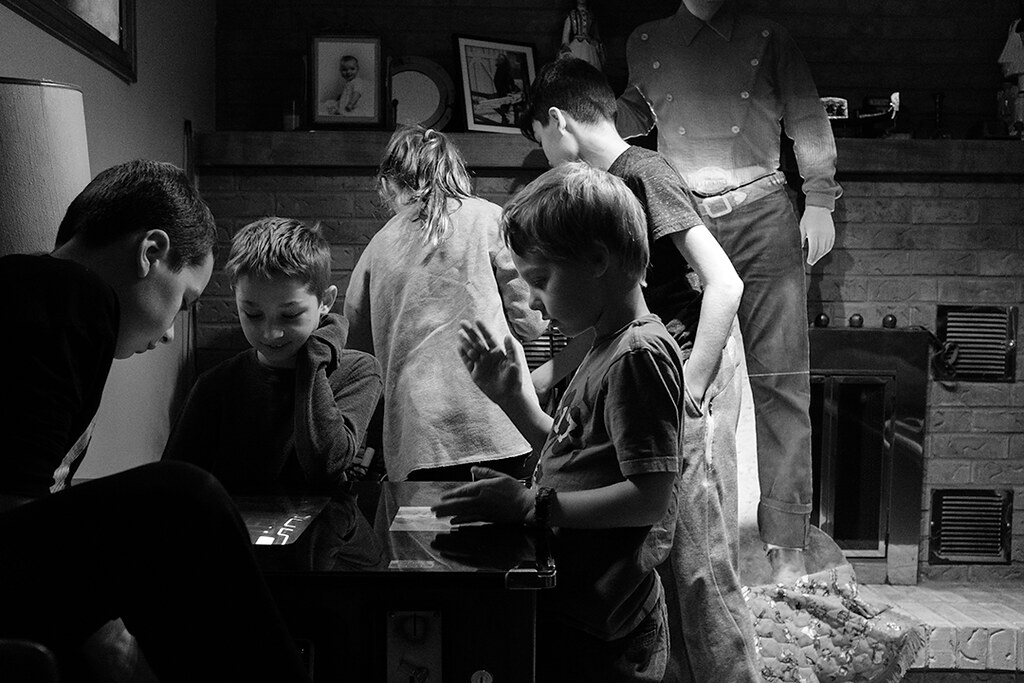
Untitled {Stoney Creek, Ontario]: photo by Dominic Bugatto, 31 March 2018
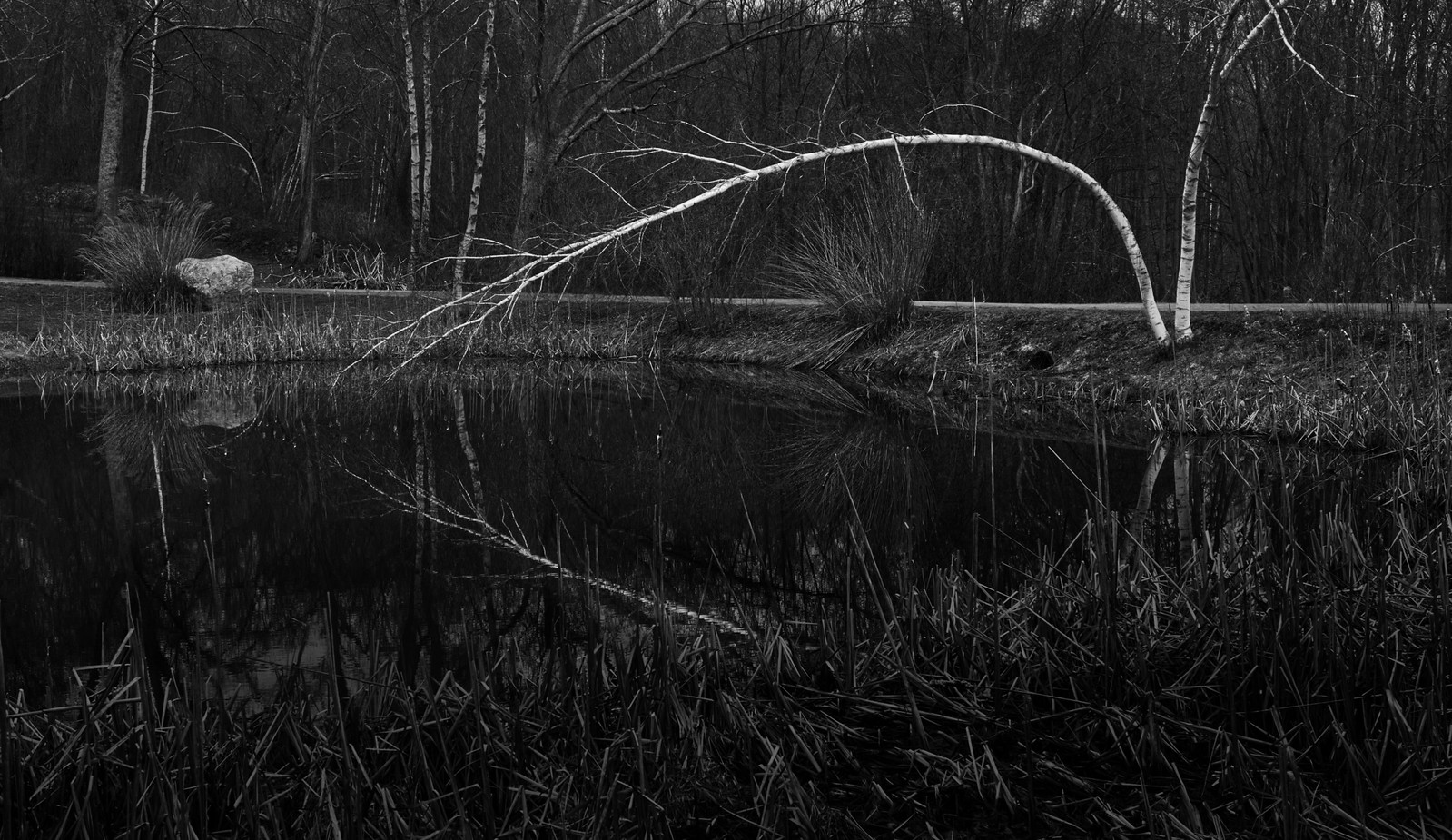



Untitled {Stoney Creek, Ontario]: photo by Dominic Bugatto, 31 March 2018

Lay down birch | Brooklyn Ct: photo by efo, 13 April 2018

Lay down birch | Brooklyn Ct: photo by efo, 13 April 2018

Lay down birch | Brooklyn Ct: photo by efo, 13 April 2018

Another show | Los Angeles, Ca.: photo by michaelj1998, 19 April 2018

Another show | Los Angeles, Ca.: photo by michaelj1998, 19 April 2018

Another show | Los Angeles, Ca.: photo by michaelj1998, 19 April 2018
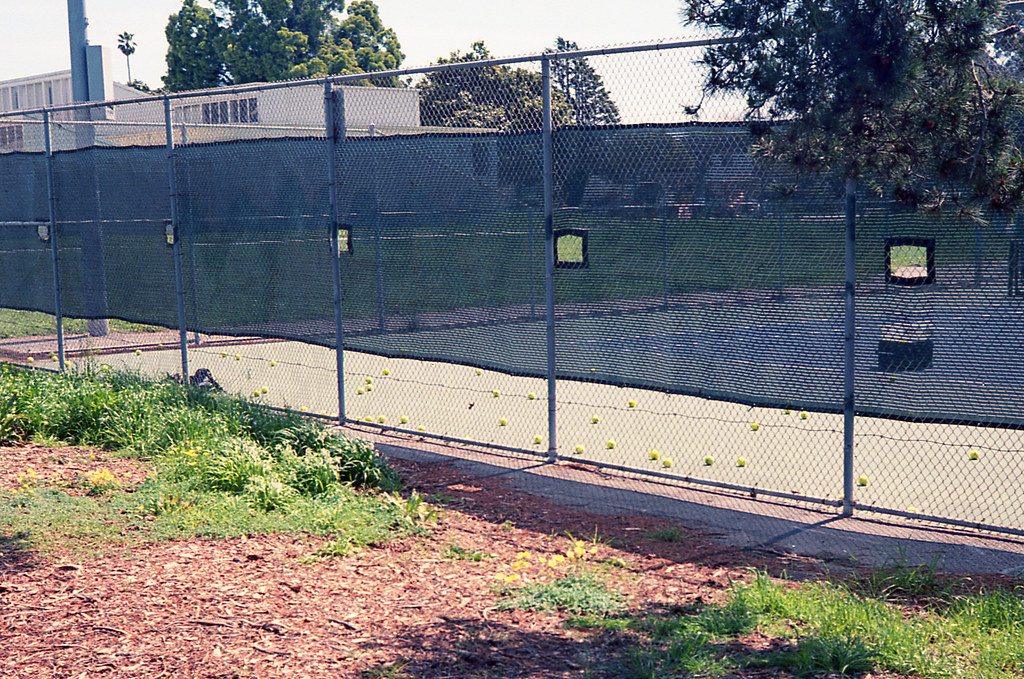
2018-70 | Berkeley, CA: photo by biosfear, April 2018

2018-69 | San Francisco, CA: photo by biosfear, March 2018

Award winning | Los Angeles, Ca.: photo by michaelj1998, 8 April 2018

Award winning | Los Angeles, Ca.: photo by michaelj1998, 8 April 2018

Award winning | Los Angeles, Ca.: photo by michaelj1998, 8 April 2018
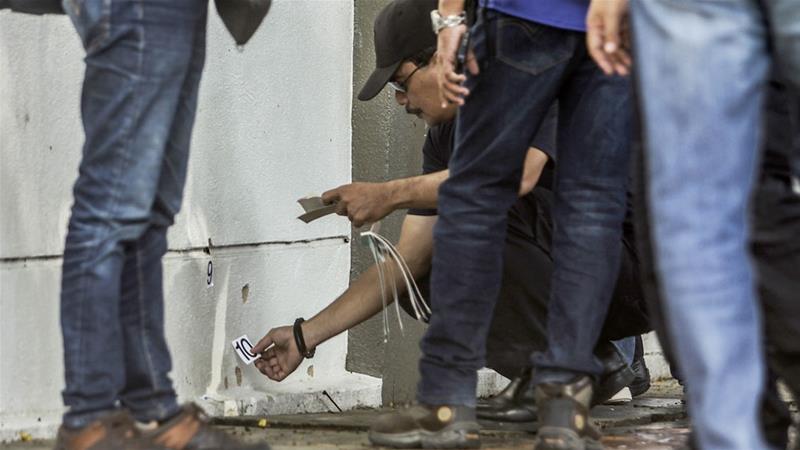
Murder in Malaysia turns spotlight on Israeli spy agency's policy of targeted killings of Palestinian operatives: image via Al Jazeera News @AJE News, 23 April 2018
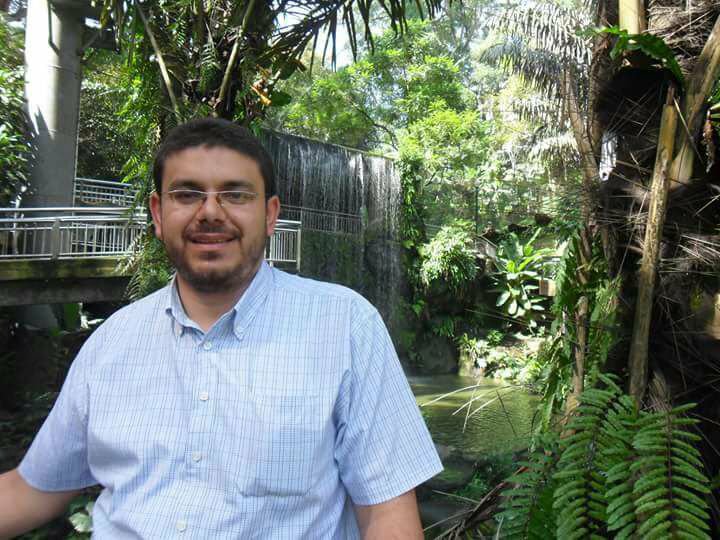
In Kuala Lumpur, capital of Malaysia, Hamas man Muhammad Fadi Batash, an engineer who was involved in the development of unmanned aerial vehicles, was killed tonight by two gunmen on a motorcycle, who shot him several times... I wonder if they were dressed in tennis clothes. : image via nir dvori @ndvori, 20 April 2018
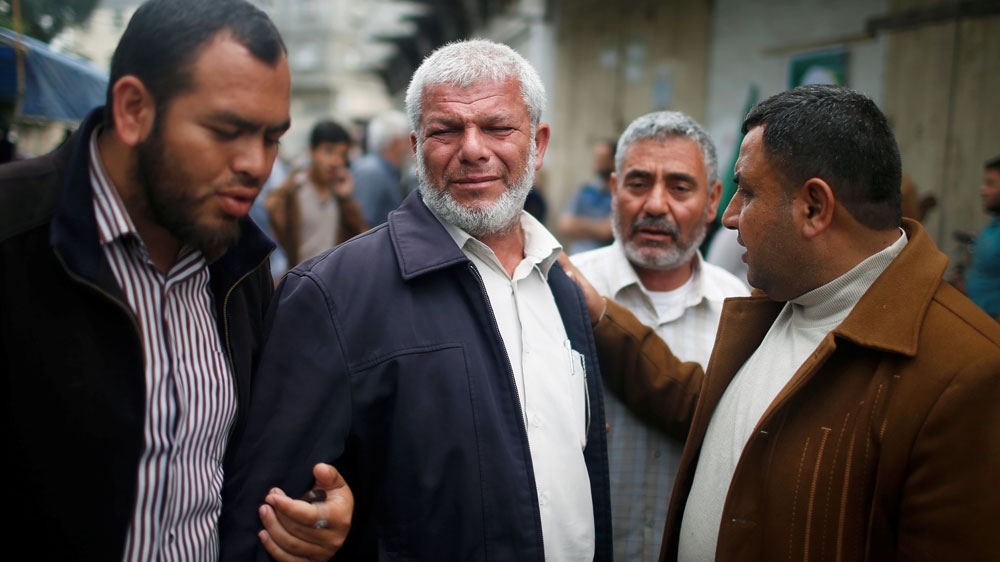
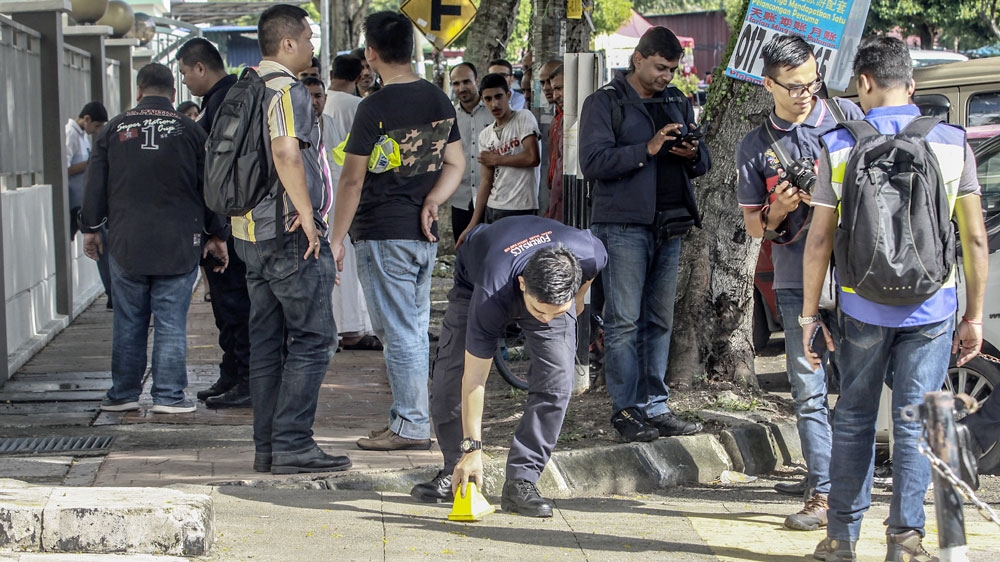
For example, al-Batsh could have been identified as a target through general collection of intelligence via units inside Israeli military and intelligence organisations that follow Hamas.
However, it does not have the legal authority to approve an operation.
The Caesarea unit
Caesarea is an undercover operational branch within Mossad in charge of planting and running spies mainly inside Arab countries and around the world.

Relatives of al-Batsh mourned in the northern Gaza Strip on Friday: photo by Mohammed Salem/Reuters, 20 April 2018

Another show | Los Angeles, Ca.: photo by michaelj1998, 19 April 2018

Another show | Los Angeles, Ca.: photo by michaelj1998, 19 April 2018

Another show | Los Angeles, Ca.: photo by michaelj1998, 19 April 2018

2018-70 | Berkeley, CA: photo by biosfear, April 2018

2018-69 | San Francisco, CA: photo by biosfear, March 2018

Award winning | Los Angeles, Ca.: photo by michaelj1998, 8 April 2018

Award winning | Los Angeles, Ca.: photo by michaelj1998, 8 April 2018

Award winning | Los Angeles, Ca.: photo by michaelj1998, 8 April 2018
Murder in Malaysia

Murder in Malaysia turns spotlight on Israeli spy agency's policy of targeted killings of Palestinian operatives: image via Al Jazeera News @AJE News, 23 April 2018

מעניין
אם היו לבושים בבגדי טניס..
בקואלה למפור בירת מלזיה חוסל הלילה איש החמאס מוחמד פאדי באטאש, מהנדס
שעסק בפיתוח מל"טים. שני מתנקשים על אופנוע ירו בו מספר פעמים.
In Kuala Lumpur, capital of Malaysia, Hamas man Muhammad Fadi Batash, an engineer who was involved in the development of unmanned aerial vehicles, was killed tonight by two gunmen on a motorcycle, who shot him several times... I wonder if they were dressed in tennis clothes. : image via nir dvori @ndvori, 20 April 2018

Relatives of al-Batsh mourned in the northern Gaza Strip on Friday: photo by Mohammed Salem/Reuters, 20 April 2018
Kuala Lumpur police: Killing of al-Batsh an 'international issue': Malaysia deputy PM says suspects in killing of Fadi al-Batsh believed to be Europeans with links to foreign spy agency.: Al Jazeera News, 22 April 2018
Kuala Lumpur's chief of police says the killing of a Palestinian academic in the Malaysian capital is an "international issue" that is being investigated from all angles.
Kuala Lumpur's chief of police says the killing of a Palestinian academic in the Malaysian capital is an "international issue" that is being investigated from all angles.
Malaysian authorities said an autopsy was carried out Sunday morning on the body of Hamas member Fadi al-Batsh, a day after the drive-by shooting that Hamas and the victim's family blamed on Israel.
"We are investigating all angles. I have to
investigate very carefully and deeply. This is an international issue,"
police chief Mazlan Lazim said.
Gaza's ruling Hamas movement said al-Batsh was an important member of the
organisation, accusing Israel's Mossad Mossad intelligence agency of being
behind the killing.
Calling him a "loyal" member, Hamas said al-Batsh was a "scientist of Palestine's youth scholars" who made
"important contributions" and participated in international forums in
the field of energy.
The group initially stopped short of blaming Israel, saying only that he had been "assassinated by the hand of treachery".
However, its top leader later accused the Mossad of killing him and threatened retaliation.
Ismail Haniyeh told The Associated Press on Saturday that based on
previous assassinations "Mossad is not away from this disgraceful,
terrible crime".
On Saturday, he visited the mourning tent the armed wing of Hamas
opened outside the house of al-Batsh's family in Jabaliya in the north
of the Gaza Strip.
Speaking to Al Jazeera in Gaza, al-Batsh's father called on the
Malaysian authorities to investigate the "assassination" with urgency.
Asked if Israel was behind the attack, Israeli Defence Minister
Avigdor Lieberman declined to respond directly, suggesting instead that
the alleged assassination may have been the result of score-settling
within Hamas.
"We heard about this [killing] on the news," Lieberman told Israel's
Kan Reshet Bet radio.
"There is a tradition among terrorist
organisations of blaming Israel for every settling of accounts," he
added.
Israeli officials rarely make statements on alleged intelligence agency activity.
Ahmad Zahid Hamidi, Malaysia's deputy prime minister, said the
suspects were believed to be Europeans with links to a foreign
intelligence agency, according to state news agency Bernama.
Al-Batsh was walking from his high-rise apartment to dawn prayers at a
local mosque in the Kuala Lumpur suburb of Gombak when he was shot by
two gunmen riding a motorcycle, officials said.
At the crime scene, police markers indicated 14 bullets had been sprayed at the victim, some of them hitting a wall.
Outside the victim's home in Kuala Lumpur, Mohammad Shedad, 17, a
student and relative of the victim, also blamed Mossad for the killing.
"It is definitely the work of Mossad. Fadi is a very clever person,
anyone who is clever is a threat to Israel," he told AFP news agency.
"Fadi is a Hamas member and knows how to make rockets. So [Israel] think he is dangerous."
Al-Batsh leaves behind a wife and three young children. He had lived in Malaysia for the past 10 years.
Ahmad Abu Bakar, 33, a foreign student studying in Malaysia, said he had known the victim for two years.
"He is friendly and he preaches good things. He never preached any hatred. I am shocked by the killing," he said.
In December 2016, Palestinian drone expert Mohamed al-Zawari, was shot dead in Tunisia, with Hamas accusing Israel of killing him.
Israel is widely believed to have killed numerous Palestinian activists in the past, many of them overseas.

Malaysian forensic officers collect evidence at the crime scene where Palestinian scientist Fadi al-Batsh was killed: photo by EPA, 20 April 2018
A Palestinian scholar has been shot dead by two assailants in the Malaysian capital, Kuala Lumpur, as he was heading to a mosque for dawn prayers, according to local police.
In a statement on Twitter, Hamas described al-Batsh as a "young Palestinian scholar" from Jabalia in the Gaza Strip. It called al-Batsh a "martyr" and said he was a "distinguished scientist who has widely contributed to the energy sector".
Palestinian websites identified al-Batsh as a relative of a senior official in the Gaza branch of the Islamic Jihad movement.
Palestinian Ambassador to Malaysia Anwar H al-Agha was quoted by the New Straits Times newspaper as saying the victim was a second imam at his mosque.
Israel is widely believed to have killed numerous Palestinian activists in the past, many of them overseas.
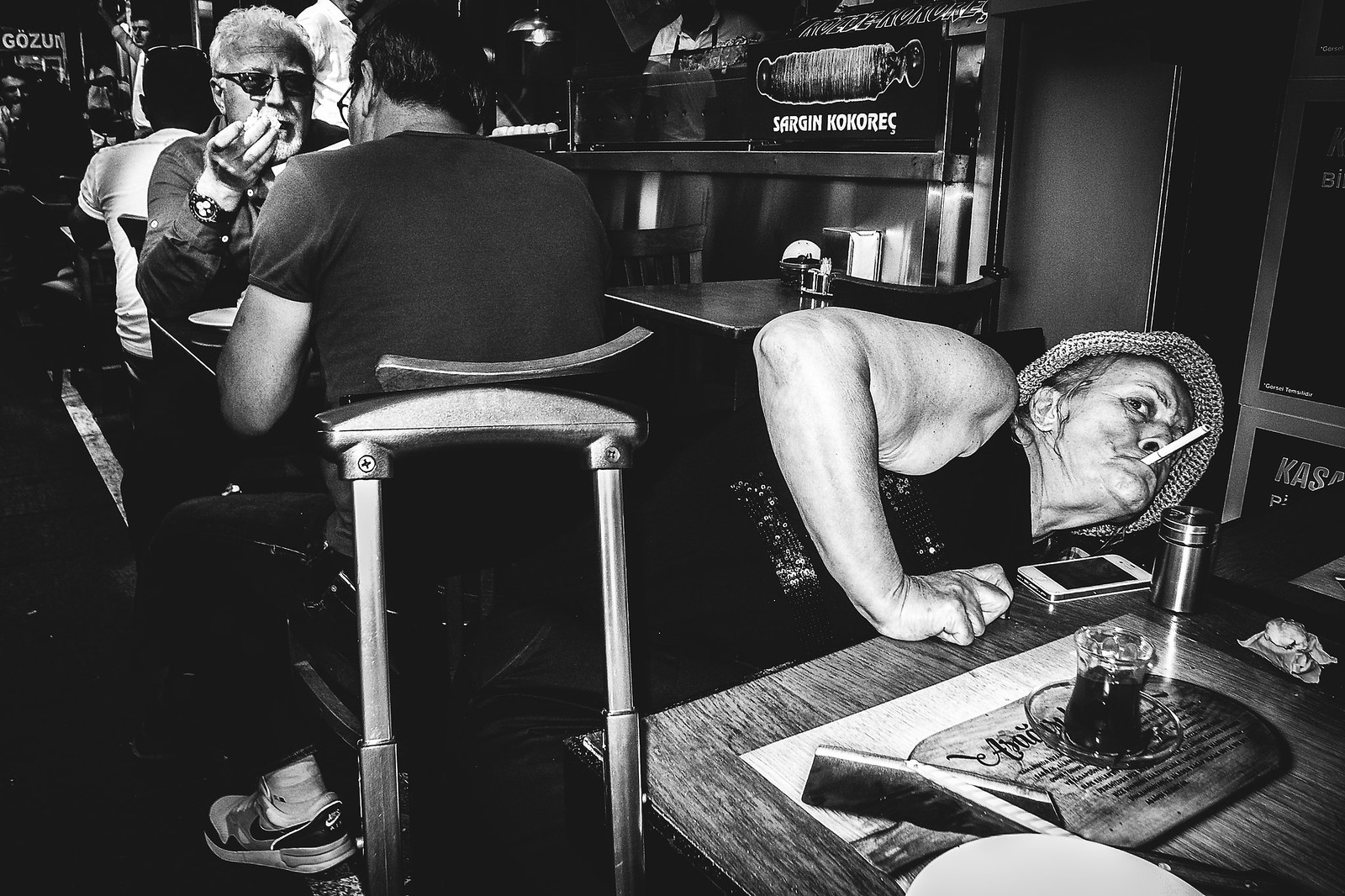


Palestinian scholar killed in Kuala Lumpur, family blames Mossad: Fadi al-Batsh's father accuses Israeli intelligence of 'assassination' after fatal shooting in Malaysian capital.: Al Jazeera News, 21 April 2018
A Palestinian scholar has been shot dead by two assailants in the Malaysian capital, Kuala Lumpur, as he was heading to a mosque for dawn prayers, according to local police.
Fadi
al-Batsh, a 35-year-old Palestinian academic and member of Hamas, was
instantly killed by the unknown attackers in a residential neighbourhood
of Kuala Lumpur on Saturday.
Al-Batsh's father told Al Jazeera that he accuses Israel's intelligence agency, Mossad,
of being behind his son's killing and called on the Malaysian
authorities to look into who carried out the "assassination" as soon as
possible.
Ahmad Zahid Hamidi, Malaysia's deputy prime minister,
said the suspects were believed to be Europeans with links to a foreign
intelligence agency, according to state news agency Bernama.
According to police chief Datuk Seri Mansor Lazim, the two attackers
had waited for al-Batsh in front of a residential building in Setapak
district for almost 20 minutes, and fired at least 10 bullets, four of
which instantly killed him.
In a statement on Twitter, Hamas described al-Batsh as a "young Palestinian scholar" from Jabalia in the Gaza Strip. It called al-Batsh a "martyr" and said he was a "distinguished scientist who has widely contributed to the energy sector".
Palestinian websites identified al-Batsh as a relative of a senior official in the Gaza branch of the Islamic Jihad movement.
Palestinian Ambassador to Malaysia Anwar H al-Agha was quoted by the New Straits Times newspaper as saying the victim was a second imam at his mosque.
He had been reportedly living in Malaysia for 10 years.
Agha
said Imam Fadi was supposed to have left for a conference in Turkey on
Saturday. He was survived by his wife and three children.
In
December 2016, Palestinian drone expert Mohamed al-Zawari, was shot
dead in Tunisia, with Hamas accusing Israel of killing him.
A Palestinian scholar has been shot dead by two assailants in the Malaysian capital, Kuala Lumpur, as he was heading to a mosque for dawn prayers, according to local police.
A Palestinian scholar has been shot dead by two assailants in the Malaysian capital, Kuala Lumpur, as he was heading to a mosque for dawn prayers, according to local police.

Untitled {Istanbul]: photo by Metin Ekin, 20 August 2017

Untitled {Istanbul]: photo by Metin Ekin, 20 August 2017

Untitled {Istanbul]: photo by Metin Ekin, 20 August 2017
How Mossad carries out assassinations:
Fatal shooting in Malaysia puts spotlight on Israeli spy agency's
policy of targeted killings of Palestinian operatives.: Ali Younes, Al
Jazeera, 23 April 2018
|
The
killing of 35-year-old Palestinian scientist Fadi al-Batsh in the
Malaysian capital Kuala Lumpur has taken the wraps off a covert
programme of targeted killings of Palestinians deemed a threat by Israel.
Al-Batsh studied electrical engineering in Gaza before going on to earn a PhD in the same subject in Malaysia.
He specialised in power systems and energy saving and had published a number scientific papers on the subject.
Gaza's ruling Hamas said al-Batsh was an important member of the group and accused Israel's
Mossad intelligence agency of being behind Saturday's incident.
Calling him a "loyal" member, Hamas said al-Batsh was a "scientist of
Palestine's youth scholars" who made "important contributions" and
participated in international forums in the field of energy.
Speaking to Al Jazeera, al-Batsh's father said he suspected Mossad
of being behind his son's killing and appealed to Malaysian authorities
to unravel the "assassination" plot as soon as possible.
According to the Israeli investigative journalist Ronen Bergman, who
is one of the foremost experts on Israeli intelligence and author of the book
Rise and Kill First, the murder of al-Batsh bears all the hallmarks of a Mossad operation.
"The fact that the killers used a motorcycle to kill their target,
which has been used in many other Mossad operations before and being
done as a clean, professional killing operation far away from Israel,
points to Mossad's involvement," Bergman told A Jazeera by phone.
Identifying a target for assassination by Israeli intelligence
usually runs through several institutional and organisational steps
within Mossad, the broader Israeli intelligence community and the
political leadership.
Sometimes the target is identified by other Israeli domestic and military services.
For example, al-Batsh could have been identified as a target through general collection of intelligence via units inside Israeli military and intelligence organisations that follow Hamas.
Al-Batsh could also have been identified through other Israeli
intelligence operations and Israeli spy networks around the world.
Sources tell Al Jazeera that Hamas communications between Gaza,
Istanbul (Turkey) and Beirut (Lebanon) are tightly monitored by Israeli
intelligence networks. As such, the initial selection of al-Batsh could
well have been made through these channels.
Friends of al-Batsh who spoke to Al Jazeera on condition of anonymity said he did not hide his ties to Hamas.
"He was known within the Palestinian community for his ties to Hamas," one friend said.
Once al-Batsh was identified as a target, Mossad would then have
evaluated available intelligence to decide whether he should be killed,
what the benefits of killing him were and the best way to do it.
Once the Mossad's specialised unit finishes its file on
the target, it takes its findings to the heads of Intelligences Services
Committee, which comprises the chiefs of Israeli intelligence
organisations and is known by its Hebrew acronym, VARASH, or Vaadan
Rashei Ha-sherutim.
VARASH would only discuss the operation and provide input and suggestions.
However, it does not have the legal authority to approve an operation.
Only the prime minister of Israel has the authority to approve such an operation.
Bergman says that Israeli prime ministers typically prefer not to take that decision by themselves for political reasons.
"Oftentimes the prime minister would involve one or two other
ministers in the decision to approve, which oftentimes includes the
minister of defence," Bergman said.
Once the approval is obtained, the operation then moves back to
Mossad for planning and execution, which could take weeks, months or
even years, depending on the target.
The Caesarea unit
Caesarea is an undercover operational branch within Mossad in charge of planting and running spies mainly inside Arab countries and around the world.
The unit was established in the early 1970s, and one of its founders was a famous Israeli, spy Mike Harari.
Caesarea utilises its vast spy network in Arab states and the wider
Middle East to collect information and conduct surveillance against
current and future targets.
Harari then established Caesarea's most lethal unit, known in Hebrew
as Kidon ("the bayonet"), made up of professional killers specialised in
assassination and sabotage operations.
Kidon members are often drawn from Israeli military branches including the army or special forces.
It is likely Kidon members who killed al-Batsh in Kuala Lumpur; sources told Al Jazeera.
Mossad targeted not only Palestinian leaders and operatives but also Syrian, Lebanese, Iranian and European ones.
Caesarea is equivalent to the CIA's Special Activities Center (SAC),
which used to be called Special Activities Division before its
reorganisation and name change in 2016.
The CIA conducts its top-secret paramilitary missions - including
targeted killing operations - through its Special Operation Group (
SOG), which is part of the SAC and bears some similarities to Mossad's
Kidon.
Bergman writes that, until 2000, which marked the beginning of the
second Intifada in the occupied Palestinian territories, Israel had
conducted more than 500 assassination operations that resulted in the
deaths of more than 1,000 people, including the targets and bystanders.
During the Second Intifada, Israel conducted 1,000 more operations, of which 168 succeeded, he writes in his book.
Since then, Israel has carried out at least another 800 operations
aimed at killing Hamas civilian and military leaders in the Gaza Strip
and abroad.
Mossad maintains formal organisational and historical links with a
number of Arab intelligence services, notably the Jordanian and Moroccan
spy agencies.
More recently, and in light of shifting alliances in the region and
rising threats from armed non-state actors, Mossad has expanded its
links with Arab intelligence agencies to include a number of Arab Gulf
states and Egypt.
Mossad maintains a regional hub for its operations in the wider Middle East in the Jordanian capital Amman.
When Mossad attempted to assassinate Hamas leader Khaled Meshaal
in Amman in 1997 by spraying a lethal dose of poison into his ear, it
was a threat by the late King Hussein to close down the spy agency's
Amman station and sever Jordanian-Mossad ties that prompted Israel to
provide the antidote that saved Mashaal's life.
In his book, Bergman cites Mossad sources to claim that General Samih Batikhi, Jordan's
spy chief at the time, was angry with Mossad for not keeping him
informed about the assassination plot because he had wanted to plan the
operation together.
Another Arab country that maintains strong ties to Mossad since the 1960s is Morocco, according to Bergman's research.
"Morocco has received valuable intelligence and technical assistance
from Israel, and, in exchange, [late King] Hassan allowed Morocco's Jews
to emigrate to Israel, and Mossad received the right to establish a
permanent station in the capital Rabat, from which it could spy on Arab
countries," Bergman writes.
The cooperation reached a peak when Morocco allowed Mossad to bug the
meeting rooms and private chambers of Arab heads of states and their
military commanders during the Arab League summit in Rabat in 1965.
The summit had been convened to establish a joint Arab military command.
Unlike Mossad and other Israeli intelligence organisations that have
great leeway in deciding who to kill, the American CIA uses a strenuous
multi-tier legal process that involves the CIA's Office of General
Counsel, the US Department of Justice and the White House's Office of
Legal Counsel.
The execution of a targeted killing operation by the CIA ultimately
rests on a Presidential Finding Authorization, which is a legal document
often drafted by the CIA's Office of General Counsel and the Department
of Justice.
The President Finding Authorization provides the legal authority
through which the CIA can execute its targeted assassination missions.
A
multi-agency review process, conducted mainly by lawyers at the justice
department, the White House and the CIA, has to take place before the
president puts his signature on the Presidential Finding Authorization.
It
is estimated that Barack Obama, as the US president, authorised an
estimated 353 targeted killing operations, mainly in the form of drone
strikes.
His predecessor George W Bush authorised an estimated 48 targeted killing operations.
A former senior CIA official told Al Jazeera on the condition of anonymity that "the CIA does not decide who to kill".
"The legal process makes it very difficult for the CIA to kill someone just because the CIA thinks he is a bad guy," he said.
Most of the CIA's targeted killing operations involve drone strikes and are based on authorisation by the president.
Speaking
to Al Jazeera, Robert Baer, a former CIA operations officer, said: "The
White House must sign off on any targeted killing operation, especially
if it is a high-value target.
"It is a different case, however, if the operation is conducted in
battlefields or during wars like in Afghanistan or Iraq, in which case
field officers have more legal room to do their targeted killing."
In Mossad, the legality of any assassination of any target is much
more liberal and does not involve legal constraints similar to those
followed by the CIA, according to sources familiar with the process.
"It is part of their national policy," Baer said, referring to the Israeli targeted assassination policy.

Relatives of al-Batsh mourned in the northern Gaza Strip on Friday: photo by Mohammed Salem/Reuters, 20 April 2018
Fadi
Al-Batsh was a Palestinian professor of electrical engineering in
Malaysia. He was gunned down this week by Israeli terrorists. How big a
story would it have been if an Israeli professor was gunned down by
Palestinians?: tweet via asad abukhalil @asadabukhalil, 22 April 2018
Students wave the Malaysian flag during the 59th National Day celebrations at the Independence Square in Kuala Lumpur, Malaysia, on Wednesday: photo by Joshua Paul/AP, 31 August 2016

Students wave the Malaysian flag during the 59th National Day
celebrations at the Independence Square in Kuala Lumpur, Malaysia, on
Wednesday: photo by Joshua Paul/AP, 31 August 2016
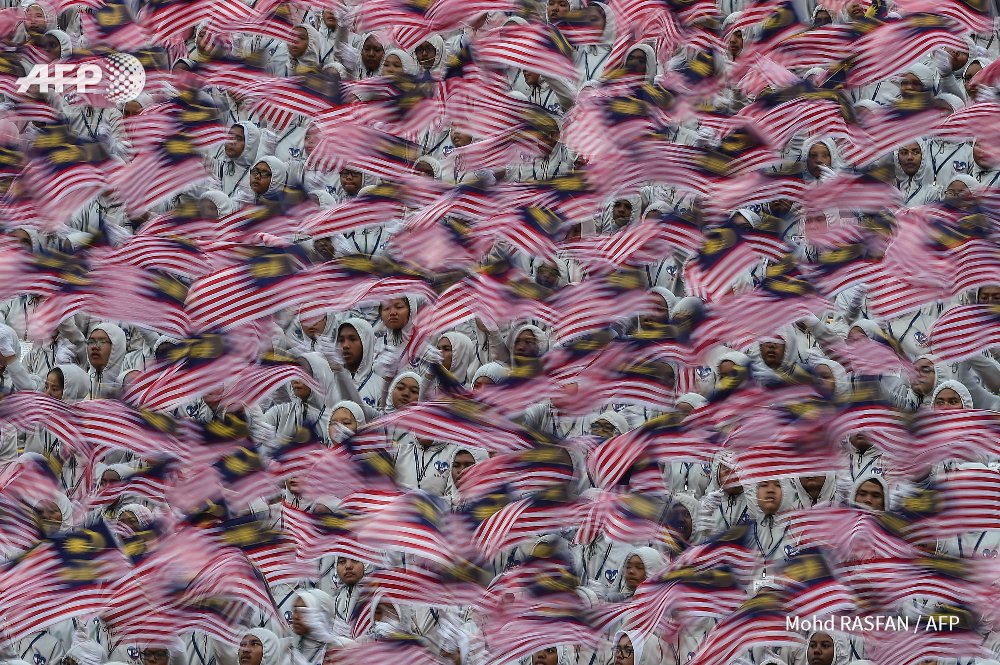
MALAYSIA - Malaysians celebrated the 59th National Day in Kuala Lumpur. By @rasfan @AFPphoto: image via AFP Photo Department @AFPphoto, 31 August 2016

MALAYSIA - Malaysians celebrated the 59th National Day in Kuala Lumpur. By @rasfan @AFPphoto: image via AFP Photo Department @AFPphoto, 31 August 2016
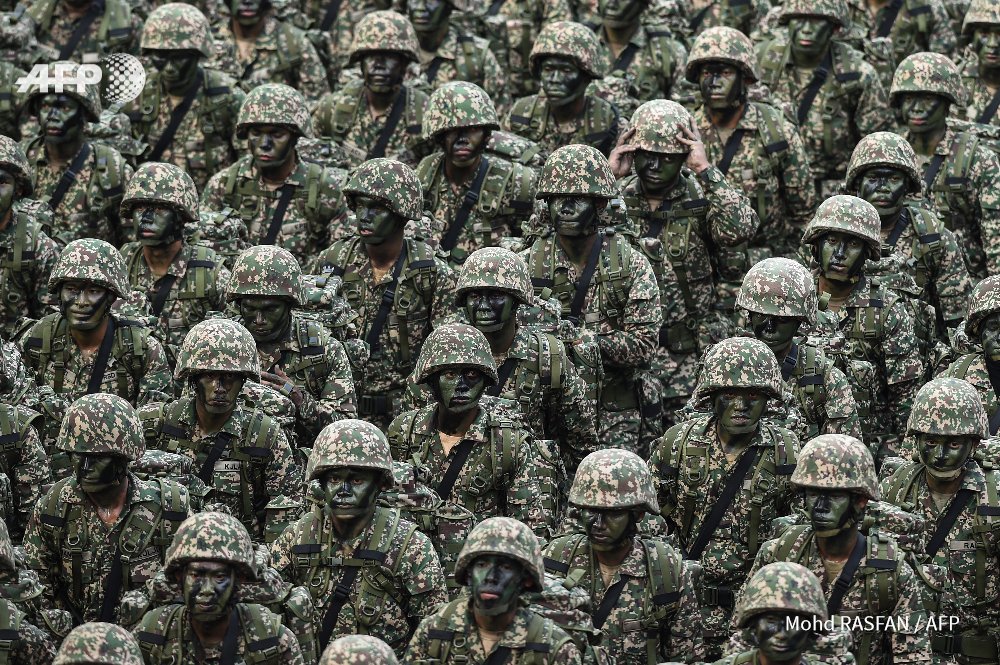
MALAYSIA - Malaysians celebrated the 59th National Day in Kuala Lumpur. By @rasfan @AFPphoto: image via AFP Photo Department @AFPphoto, 31 August 2016
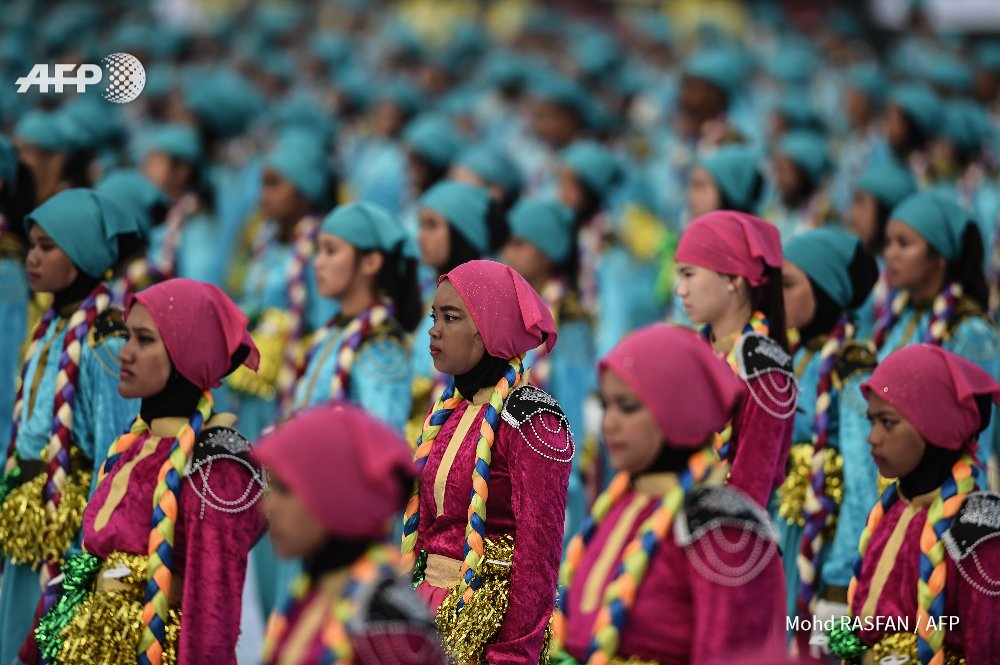
MALAYSIA - Malaysians celebrated the 59th National Day in Kuala Lumpur. By @rasfan @AFPphoto: image via AFP Photo Department @AFPphoto, 31 August 2016
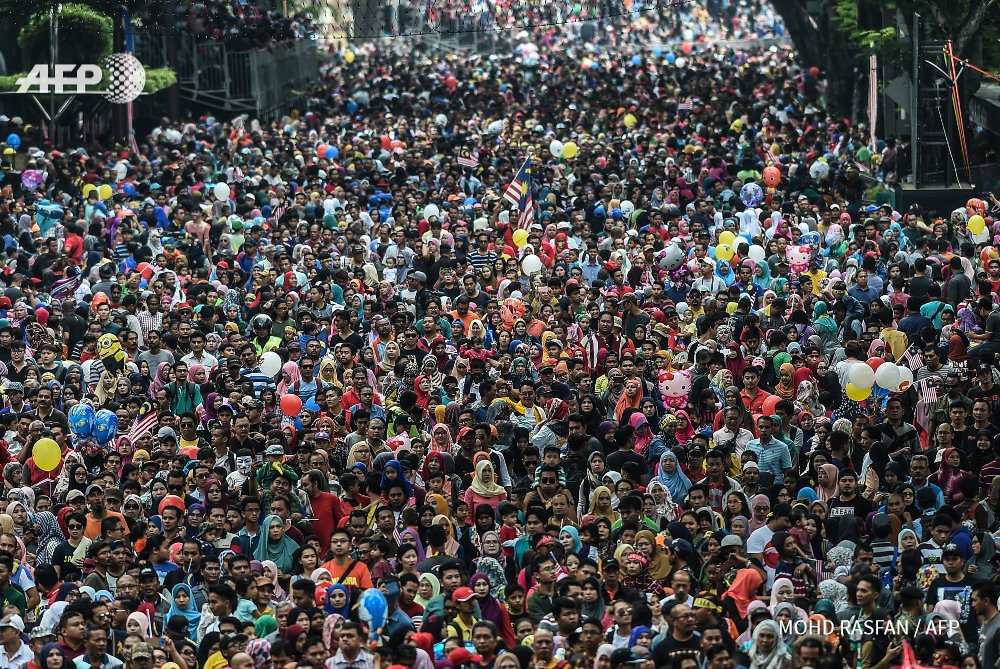
MALAYSIA - 59th National Day celebrations at Independence Square in Kuala Lumpur. By @rasfan: image via Frédérique Geffard @fgeffardAFP, 28 August 2016
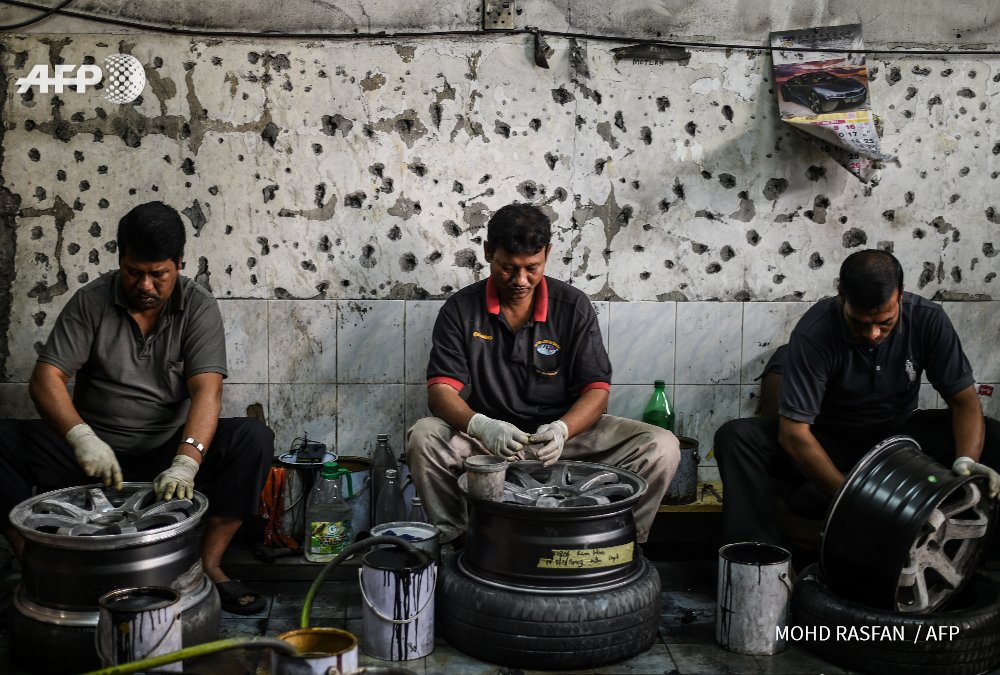
Fadi al-Batsh was shot in the 'body and head', police said. Mossad has targeted Palestinian, Syrian, Lebanese, Iranian and European leaders and operatives: photo by EPA, 23 April 2018
anywhere might be somebody's theatre of operations
Students wave the Malaysian flag during the 59th National Day celebrations at the Independence Square in Kuala Lumpur, Malaysia, on Wednesday: photo by Joshua Paul/AP, 31 August 2016

MALAYSIA - Malaysians celebrated the 59th National Day in Kuala Lumpur. By @rasfan @AFPphoto: image via AFP Photo Department @AFPphoto, 31 August 2016

MALAYSIA - Malaysians celebrated the 59th National Day in Kuala Lumpur. By @rasfan @AFPphoto: image via AFP Photo Department @AFPphoto, 31 August 2016

MALAYSIA - Malaysians celebrated the 59th National Day in Kuala Lumpur. By @rasfan @AFPphoto: image via AFP Photo Department @AFPphoto, 31 August 2016

MALAYSIA - Malaysians celebrated the 59th National Day in Kuala Lumpur. By @rasfan @AFPphoto: image via AFP Photo Department @AFPphoto, 31 August 2016

MALAYSIA - 59th National Day celebrations at Independence Square in Kuala Lumpur. By @rasfan: image via Frédérique Geffard @fgeffardAFP, 28 August 2016

#Malaysia Workers wash used alloy car wheels before spraying them with
paint at a workshop in Ampang, in the suburbs of Kuala Lumpur. Photo
@rasfan #AFP: image via Frederique Geffard @fgeffardAFP, 19 July
2017
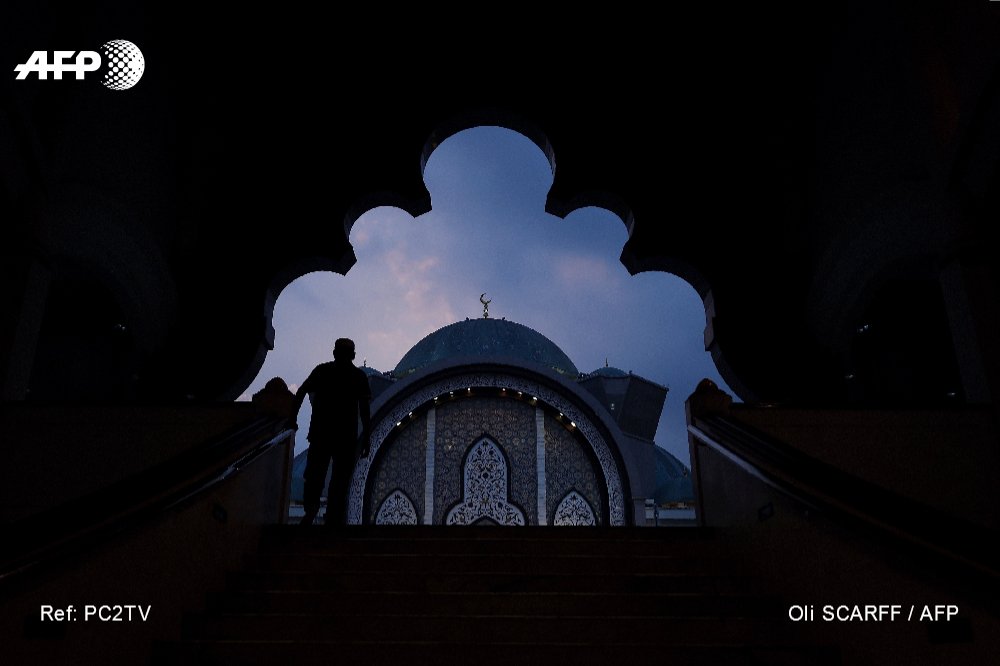
#Malaysia A muslim man arrives at the Wilayah mosque to break his fast and perform prayers during the Ramadan in Kuala Lumpur. Photo @MananVatsyayana: image via Frédérique Geffard @fgeffardAFP, 7 June 2017
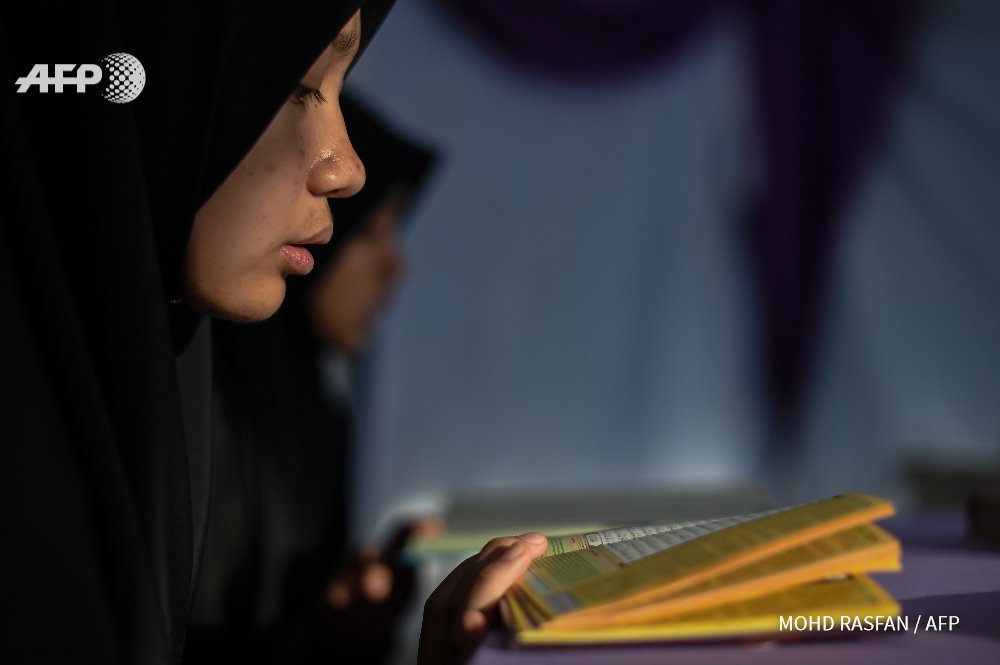
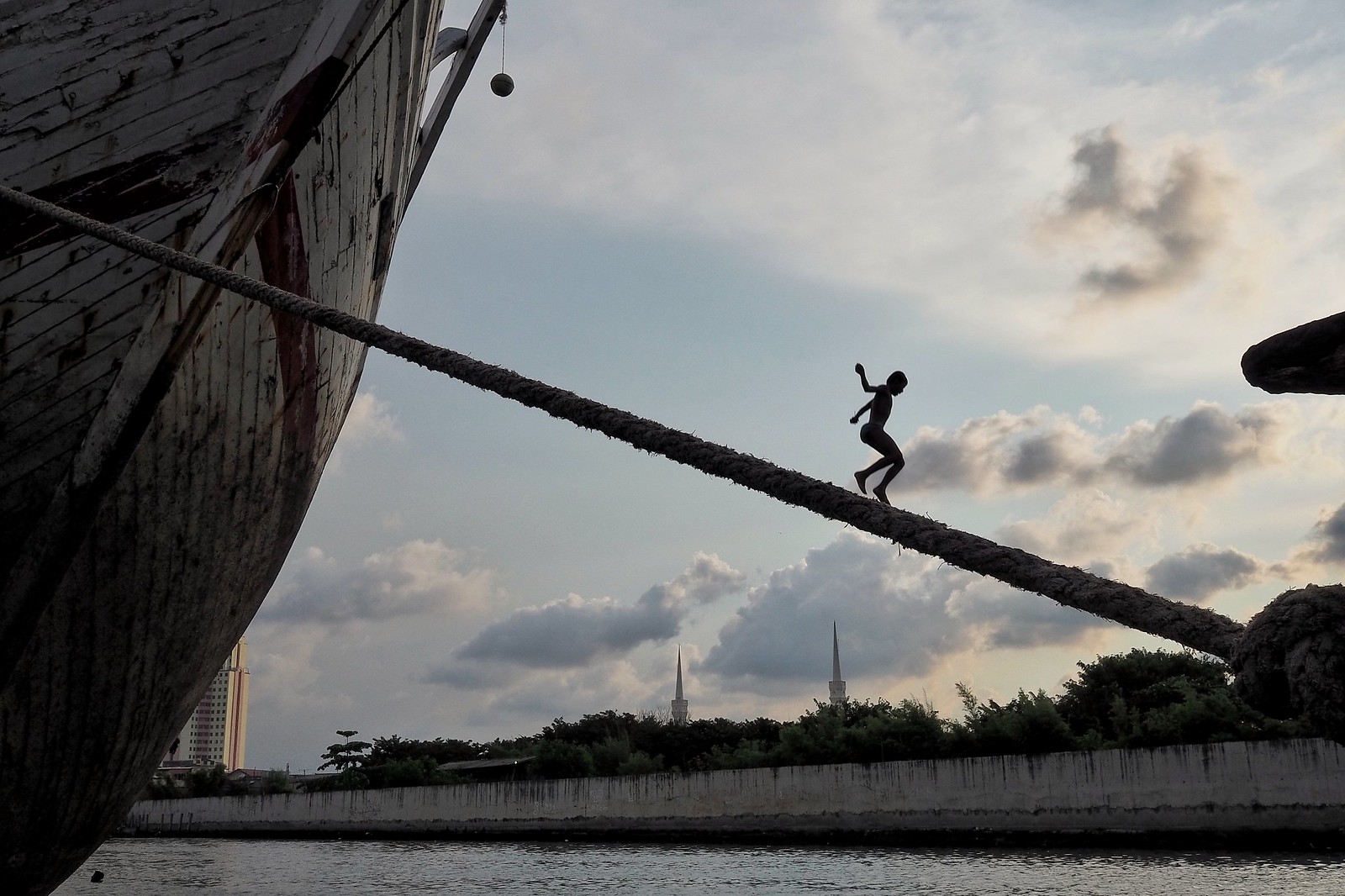
2018-04-10_05-20-41 | Sunda Kelapa, Jakarta, Indonesia: photo by Chris Tuarissa, 7 April 2018

2018-04-10_05-20-41 | Sunda Kelapa, Jakarta, Indonesia: photo by Chris Tuarissa, 7 April 2018

2018-04-10_05-20-41 | Sunda Kelapa, Jakarta, Indonesia: photo by Chris Tuarissa, 7 April 2018

#04 | Tanah Abang, Jakarta, Indonesia: photo by Chris Tuarissa, 16 April 2018

#04 | Tanah Abang, Jakarta, Indonesia: photo by Chris Tuarissa, 16 April 2018

#04 | Tanah Abang, Jakarta, Indonesia: photo by Chris Tuarissa, 16 April 2018
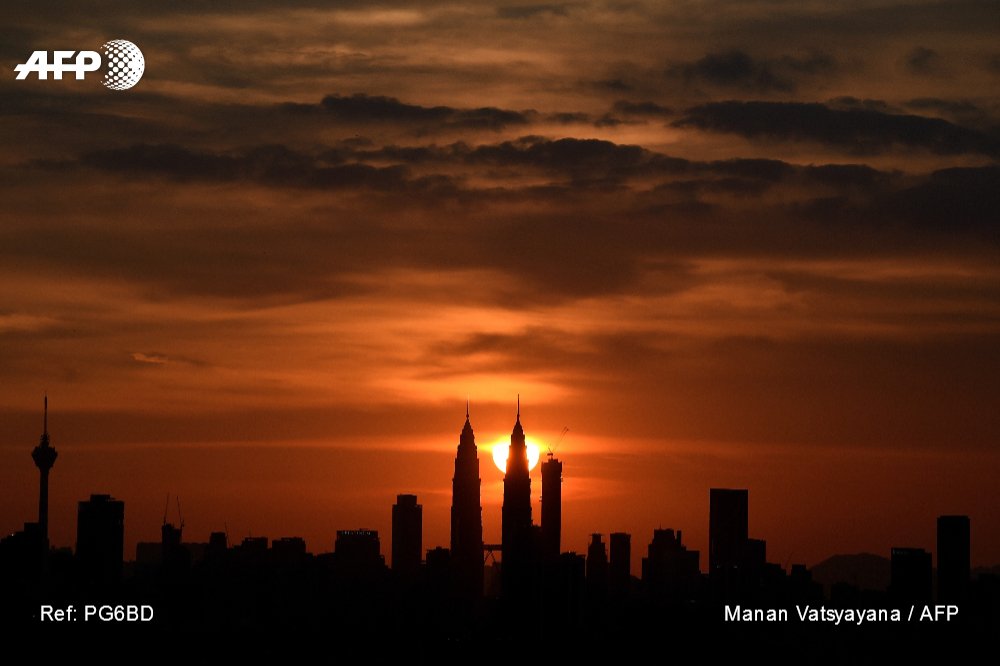

#Malaysia A muslim man arrives at the Wilayah mosque to break his fast and perform prayers during the Ramadan in Kuala Lumpur. Photo @MananVatsyayana: image via Frédérique Geffard @fgeffardAFP, 7 June 2017

#Malaysia Religious students read the Koran before breaking their fast
during the Ramadan at Merdeka Square in Kuala Lumpur, Photo @rasfan: image via Frédérique Geffard @fgeffardAFP, 5 June 2017
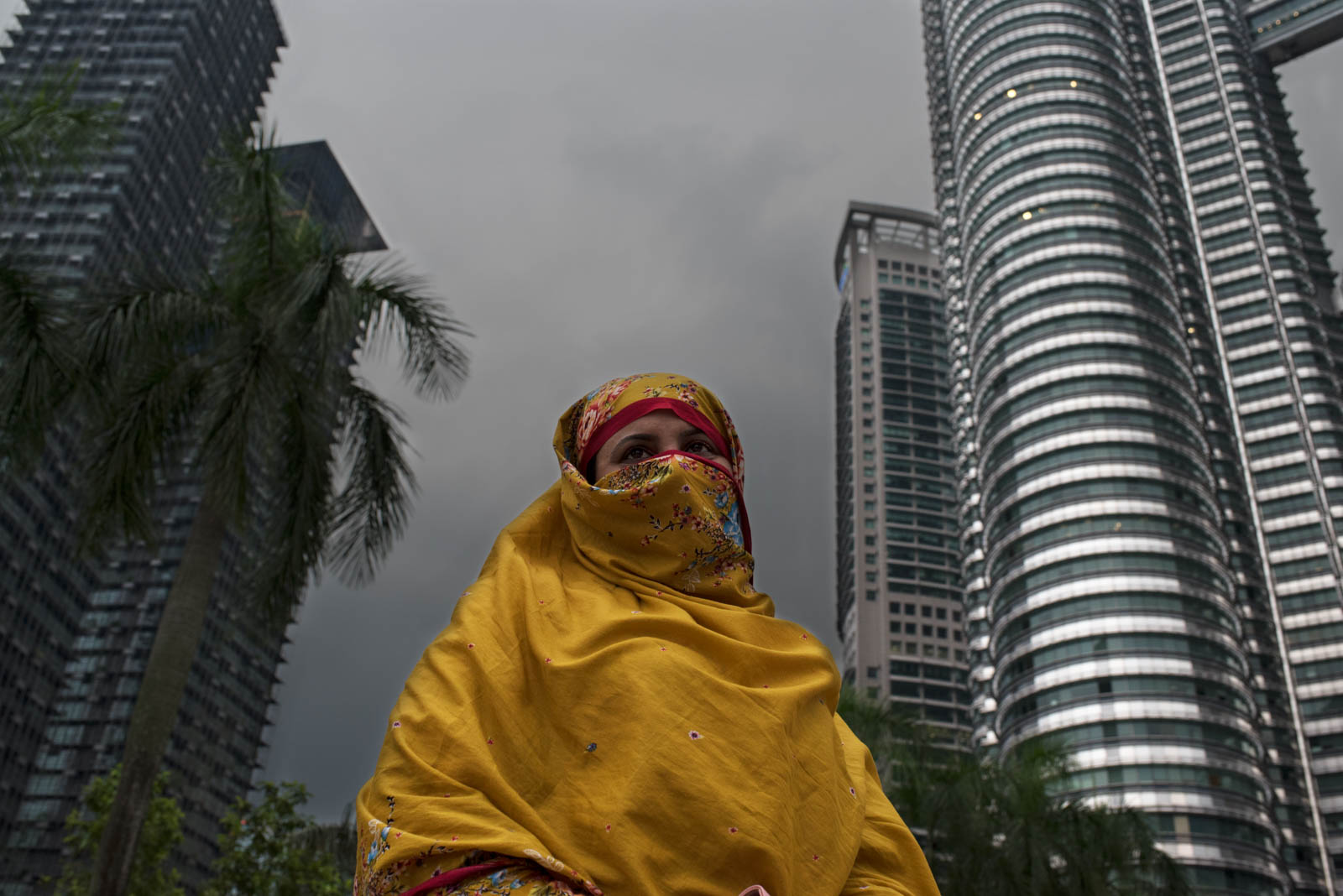
MALAY-6136 Yellow lady in the storm [Kuala Lumpur]: photo by Rose Vandepitte, 3 January 2016

MALAY-6136 Yellow lady in the storm [Kuala Lumpur]: photo by Rose Vandepitte, 3 January 2016

MALAY-6136 Yellow lady in the storm [Kuala Lumpur]: photo by Rose Vandepitte, 3 January 2016

MALAY-6136 Yellow lady in the storm [Kuala Lumpur]: photo by Rose Vandepitte, 3 January 2016

MALAY-6136 Yellow lady in the storm [Kuala Lumpur]: photo by Rose Vandepitte, 3 January 2016

MALAY-6136 Yellow lady in the storm [Kuala Lumpur]: photo by Rose Vandepitte, 3 January 2016

2018-04-10_05-20-41 | Sunda Kelapa, Jakarta, Indonesia: photo by Chris Tuarissa, 7 April 2018

2018-04-10_05-20-41 | Sunda Kelapa, Jakarta, Indonesia: photo by Chris Tuarissa, 7 April 2018

2018-04-10_05-20-41 | Sunda Kelapa, Jakarta, Indonesia: photo by Chris Tuarissa, 7 April 2018

#04 | Tanah Abang, Jakarta, Indonesia: photo by Chris Tuarissa, 16 April 2018

#04 | Tanah Abang, Jakarta, Indonesia: photo by Chris Tuarissa, 16 April 2018

#04 | Tanah Abang, Jakarta, Indonesia: photo by Chris Tuarissa, 16 April 2018

#Malaysia Malaysia's landmark Petronas Twin towers are silhouetted as
the sun sets over the Kuala Lumpur skyline. Photo @MananVatsayana:
image via Frédérique Geffard @fgeffardAFP, 10 June 2017
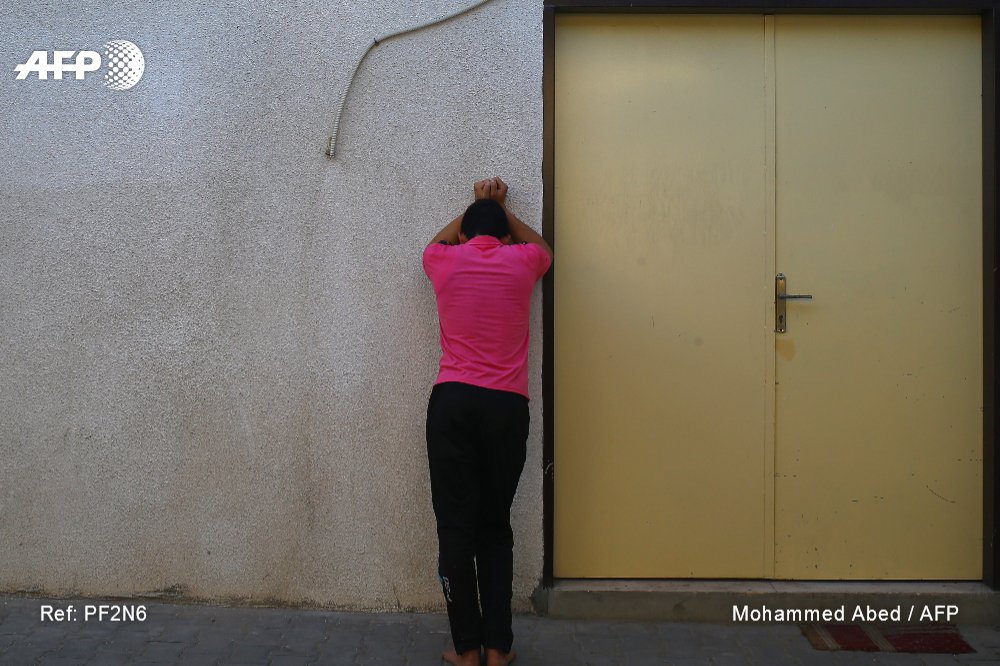
GAZA STRIP - A Palestinian cries outside a hospital morgue in Beit Lahia after a Palestinian was shot dead by Israeli soldiers. Photo @mohmdabed: image via Frédérique Geffard @fgeffardAFP, 10 June 2017

GAZA STRIP - A Palestinian cries outside a hospital morgue in Beit Lahia after a Palestinian was shot dead by Israeli soldiers. Photo @mohmdabed: image via Frédérique Geffard @fgeffardAFP, 10 June 2017
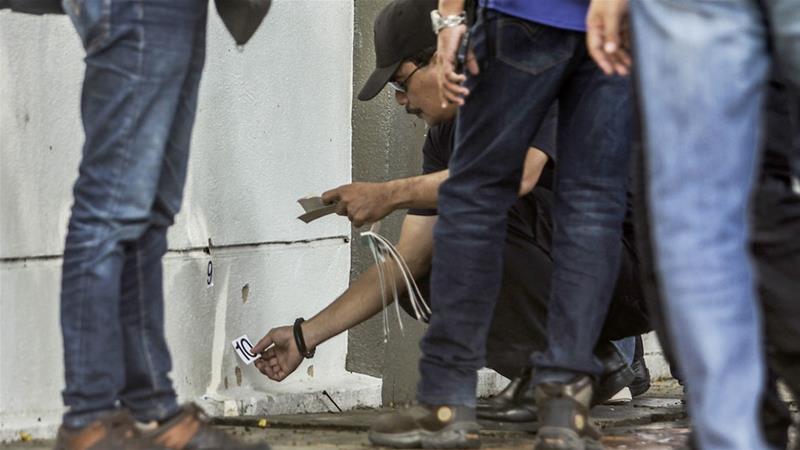



No comments:
Post a Comment